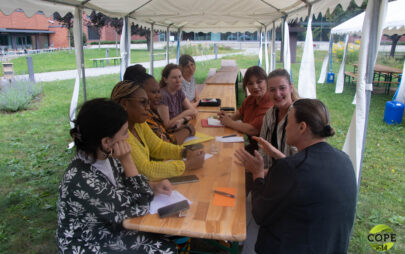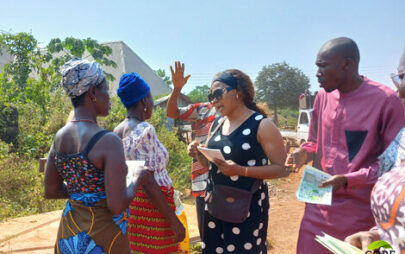COPE
The Community-Based One Health Participatory and Empowerment Strategy for One Health Interventions
Context
Objectives
In Cooperation with
- Friedrich-Loeffler-Institut (FLI), Germany
- Nigeria Centre for Disease Control and Prevention (NCDC)
- National Veterinary Research Institute (NVRI), Nigeria
Thematic priorities
Facts
Activities
-
Training and competence development
Developing and carrying out training on participatory and empowerment methods, enabling implementation of the COPE approach on the ground. -
Research and provision of evidence
Conducting baseline and post-intervention One Health Risk Assessments to assess the effects of community-based participatory development and implementation of health interventions against zoonotic disease; conducting anthropological research on the interconnectedness of pathogens, animals, environment, housing and trading practices.
-
Networking and cooperation
Developing networks of local and national health actors in Nigeria; strengthening links between anthropologists, physicians, veterinarians and public health practitioners to facilitate joint preparation for and response to zoonotic disease outbreaks.
-
Capacity development
Identifying mitigation and adaptation strategies for zoonotic pathogens; developing, implementing and evaluating locally derived intervention strategies against zoonotic diseases and other infectious or environmental challenges that burden community resilience and health.


